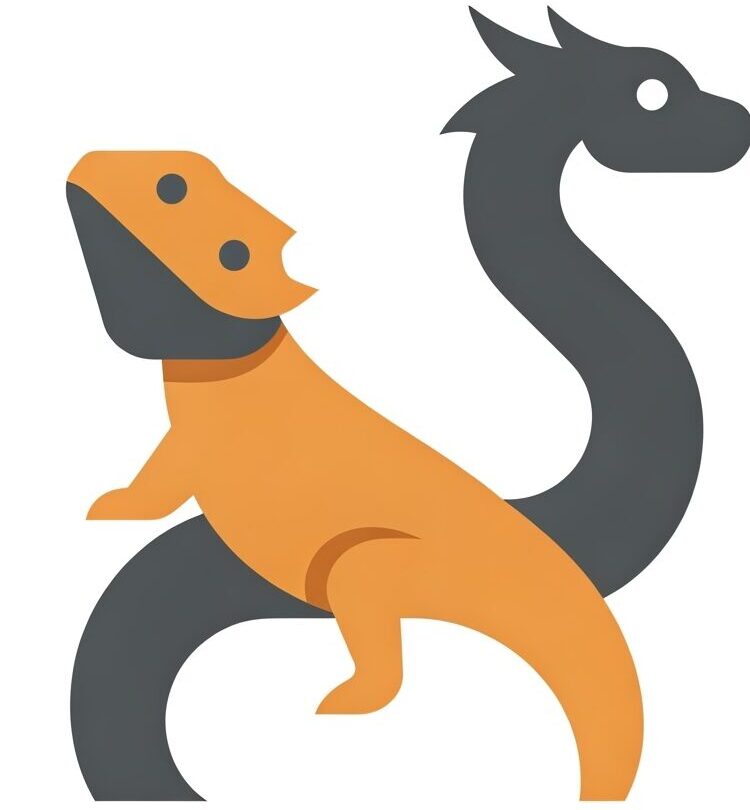Why is My Bearded Dragon Gaping Mouth? Common Causes Explained
Seeing your Bearded Dragon open its mouth wide can be concerning! It’s natural to worry if you’re unsure why they’re doing it. This article will explore the common reasons behind gaping mouth behavior in Bearded Dragons, helping you understand what might be going on.
Understanding Gaping Mouth in Bearded Dragons
While a gaping mouth can sometimes indicate a problem, it’s not always a cause for alarm. Bearded dragons sometimes gape to regulate their body temperature, much like a dog panting. However, frequent or prolonged gaping, especially when accompanied by other symptoms, warrants a closer look and potentially a vet visit. It’s all about context.
Common Causes for Gaping Mouth
Here are some of the most likely reasons your Bearded Dragon might be gaping its mouth:
-
Thermoregulation (Basking):
Bearded dragons are ectothermic (cold-blooded) and rely on external heat sources to regulate their body temperature. Gaping allows them to release excess heat, especially when basking under a heat lamp. This is a perfectly normal behavior when they’re under their basking spot and the ambient temperature is appropriate. -
Inappropriate Temperature Gradients:
If the enclosure is too hot overall, or if there isn’t a proper temperature gradient (a warm basking spot and a cooler side), your dragon may be constantly gaping in an attempt to cool down. This is a sign their environment needs adjusting. The basking spot should be in the range of 100-110°F (38-43°C) for juveniles and 95-105°F (35-41°C) for adults, while the cool side should be around 75-85°F (24-29°C). Insufficient temperature control can also lead to mouth gaping if your dragon becomes overly cold. -
Upper Respiratory Infection (URI):
A URI is a serious health issue. Gaping, especially when combined with other symptoms like wheezing, nasal discharge, lethargy, or a loss of appetite, is a strong indicator of a URI. These infections often thrive in environments with improper temperatures or humidity, or as the result of stress. -
Dehydration:
Dehydration can lead to a variety of health problems, and gaping can sometimes be a sign of discomfort or an attempt to cool down when the dragon is dehydrated. Make sure your dragon has access to fresh water and consider offering water via misting or soaking. -
Stress:
Stress can manifest in many ways, including gaping. Stressors can include:- Overhandling: Excessive handling, especially for a nervous dragon.
- Enclosure Changes: Significant changes to their environment (moving furniture, new tank mates).
- Predators: The presence of other pets (especially cats or dogs) that they perceive as a threat.
- Loud Noises: Constant exposure to loud or jarring sounds.
Addressing these potential stressors can help reduce gaping behavior.
When You Should Be Concerned
While gaping isn’t always an emergency, certain signs warrant a vet visit. Be concerned if you observe any of the following along with the gaping:
- Lethargy: Reduced activity levels, sleeping more than usual.
- Loss of Appetite: Refusing to eat or showing significantly reduced interest in food.
- Weight Loss: Noticeable decrease in body mass.
- Nasal Discharge: Mucus or fluid coming from the nose.
- Wheezing or Difficulty Breathing: Audible respiratory noises.
- Puffed-Up Throat (Beard): Constant or prolonged beard puffing, especially if not related to basking or perceived threat.
- Changes in Feces/Urates: Diarrhea, constipation, or changes in the color or consistency of their waste.
- Physical Abnormalities: Swelling, lumps, or any other unusual physical changes.
- Open-Mouth Breathing: If the dragon is breathing rapidly and deeply with its mouth open even when not basking.
What to Do Next
If you notice your Bearded Dragon gaping its mouth, here are some steps you can take:
- Double-check Habitat Parameters: Ensure temperatures, humidity, and lighting are within the ideal ranges for your dragon’s age and size. Use accurate thermometers and hygrometers.
- Observe Closely: Monitor your dragon’s behavior carefully for any other symptoms mentioned above. Note the frequency and duration of the gaping.
- Reduce Stressors: Minimize handling, ensure a quiet environment, and keep other pets away from the enclosure.
- Ensure Proper Diet and Hydration: Offer fresh water daily and provide a balanced diet appropriate for their age. Try misting them to encourage drinking.
- Consider Recent Changes: Have you made any recent changes to their environment, diet, or routine? These could be contributing to the behavior.
- Consult an Exotic Veterinarian: If you are concerned, if the gaping persists, or if you observe any other concerning symptoms, consult an exotic veterinarian immediately. They can properly diagnose the cause of the gaping and recommend appropriate treatment.
Conclusion
Understanding why your Bearded Dragon is gaping its mouth requires careful observation and consideration of its environment and overall health. While sometimes normal, it can also be a sign of underlying problems. By monitoring their behavior, addressing potential stressors, and seeking professional veterinary advice when needed, you can ensure your dragon lives a happy and healthy life.
